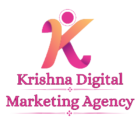Digital marketing has completely transformed the advertising and promotion landscape, disrupting traditional marketing channels and opening up new avenues for businesses to engage with their target audiences. Gone are the days of relying solely on print, television, and radio ads to promote products and services. With the rise of the internet, social media, and mobile devices, businesses can now reach consumers in more ways than ever before.
One of the key ways that digital marketing has revolutionized advertising and promotion is by enabling businesses to target their audience more precisely. Traditional marketing channels often cast a wide net, hoping to capture the attention of as many people as possible. However, digital marketing allows businesses to use data and analytics to target specific demographics, interests, and behaviors. This not only makes marketing campaigns more effective but also reduces wasted ad spend.
In addition, digital marketing has made it easier for businesses to measure the effectiveness of their campaigns in real-time. With traditional advertising channels, it can be challenging to determine the impact of a campaign accurately. However, digital marketing offers a wealth of metrics, such as impressions, clicks, and conversions, that businesses can use to track their campaigns’ performance. This enables businesses to optimize their marketing strategies continually, improving their return on investment (ROI) and driving revenue growth.
Digital marketing has also opened up new channels for businesses to engage with their target audience, such as social media, email marketing, and search engine marketing (SEM). These channels provide businesses with more opportunities to create personalized, interactive experiences that resonate with consumers. For instance, social media platforms like Facebook, Instagram, and Twitter allow businesses to engage with their customers directly, responding to their inquiries, providing support, and building brand loyalty.
Finally, digital marketing has made advertising and promotion more accessible to small and medium-sized businesses. Traditional advertising channels, such as television and print ads, can be prohibitively expensive, limiting their accessibility to larger companies with significant marketing budgets. However, digital marketing offers cost-effective alternatives, such as social media advertising, email marketing, and search engine optimization (SEO), which allow businesses of all sizes to compete on a level playing field.
In conclusion, digital marketing has transformed the advertising and promotion landscape, providing businesses with new opportunities to engage with their target audience, measure the effectiveness of their campaigns, and drive revenue growth. By embracing digital marketing strategies, businesses can stay competitive in today’s marketplace, reach more customers, and build stronger relationships with their audience.

